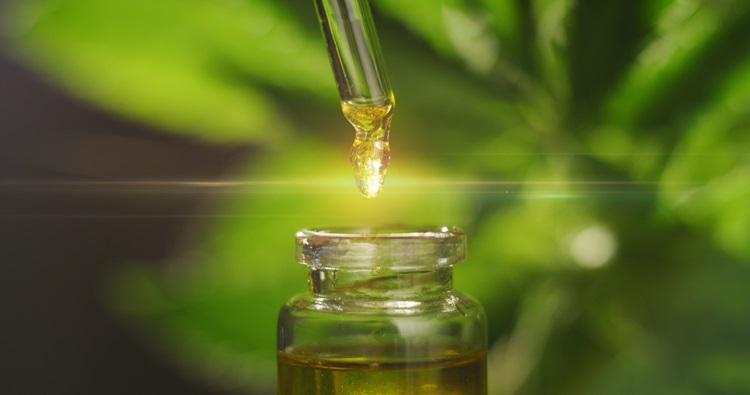CBD and cancer: can CBD oil be used to fight the disease?
- What is cancer and how is it caused?
- Cannabis and cancer
- How can CBD help fight cancer?
- CBD and cancer: what do the studies say?
- Effects of CBD oil
- How can CBD oil help with cancer?
- CBD oil dosage
- Conclusion
What is cancer and how is it caused?
Cancer is a cancer that arises from uncontrolled cell growth and mutation.
Our cells are constantly multiplying. When some die, new ones are created to replace them. Sometimes, however, this process is disrupted and the body begins to produce abnormal cells instead of healthy ones. How are these abnormal and potentially cancerous cells produced?
It all starts with our DNA (deoxyribonucleic acid), which carries the genetic information for making new cells. If DNA becomes damaged, it can cause problems in the replication process – producing dysfunctional cells. These can be either malignant or benign and can go on to form large ‘colonies’ of abnormal cells known as tumours.
Non-malignant (benign) tumours are circumscribed, remain concentrated in the affected organ and are generally slow growing. These tumours are not fatal if caught early. Treatment is usually surgical – the tumour is cut away. Non-malignant tumours are only dangerous if they grow so large that they start to press on other organs and make it impossible for them to function.
Malignant tumours differ in that they integrate into new areas and spread non-functioning cell types to other organs and tissues. This is referred to as ‘metastasis’. Cancer cells replicate relentlessly, even creating their own blood vessels to feed the energy-consuming growth of the tumour. Many can even resist the effects of chemotherapy drugs designed to kill them.
Cannabis and cancer
Medical cannabis is currently used in cancer patients to relieve nausea, vomiting, pain and to stimulate appetite. In addition to relieving these symptoms that accompany the disease or treatment itself, cannabinoids such as CBD, THC and CBN have been shown to have properties that could help fight tumours directly.
As early as 1975, scientists demonstrated that oral administration of tetrahydrocannabinol (THC) and cannabinol (CBN) inhibited the growth of Lewis lung adenocarcinoma cells in mice. Interest in the anticarcinogenic properties of cannabinoids was renewed after the discovery of the endocannabinoid system (ECS) and specific cannabinoid receptors.
Since then, several cannabinoids have been shown to have antiproliferative and proapoptotic effects in various cancers (lung, glioma, thyroid, lymphoma, skin, pancreatic, uterine, breast, prostate and colorectal cancer) both in vitro and in vivo.
In addition, some studies have revealed additional antitumor mechanisms of cannabinoids, showing their ability to interfere with tumor neovascularization, tumor cell migration, adhesion, invasion, and metastasis.
How can CBD help fight cancer?
However, the clinical use of Δ9-THC and other synthetic agonists is often limited by their undesirable psychoactive side effects, and therefore interest in non-psychoactive phytocannabinoids such as CBD has increased significantly in recent years. CBD has no psychotropic activity, and although it has very low affinity for both CB1 and CB2 receptors, it acts with unexpectedly high potency in vitro as an antagonist of CB1 receptors in mouse vascular chambers and brain tissues.
Evidence from some studies suggests a possible positive effect of CBD in cancer patients. CBD can alleviate pain and side effects of chemotherapy, such as nausea and vomiting. There is also some research on the mechanism of CBD’s potential anti-cancer effects. The benefits of CBD come from its interaction with the endocannabinoid system, specifically the CB1 and CB2 receptors.
CB2 receptors are involved in the control and regulation of cytokinesis in immune cells, which ultimately helps with anti-tumor factors related to cell division. CB1 receptors, in turn, regulate various biological functions such as appetite, metabolism and body weight, which may be useful to alleviate symptoms associated with chemotherapy. In addition, the endocannabinoid system is involved in neuropsychiatric symptoms and disorders such as anxiety and depression, which are common problems for cancer patients.

CBD and cancer: what do the studies say?
In the following overview, we will focus on the four most common types of cancer – lung, breast, prostate and colon cancer. What is the mechanism of action of CBD?
One of the cancers commonly studied in relation to CBD treatment is lung cancer, which is the leading cause of cancer deaths. The majority of lung cancer cases are non-small cell lung cancer (approximately 84%) and the remainder are small cell lung cancer. In general, small cell carcinoma tends to grow and metastasize faster than non-small cell carcinoma.
Several cell culture (primary lung cancer cells) and animal studies have found that low doses of CBD (5 mg/kg in mice) suppress cell growth and invasiveness, reduce tumour size and reduce the number of metastatic nodules.
Of all the cancer types, the inhibitory effects of CBD have been most often studied in breast cancer models. In estrogen receptor-stimulated breast cancer cells, CBD suppressed cell growth by disrupting cell cycle progression and inducing autophagy to promote apoptosis.
Apoptosis, the process of programmed cell death, is the target of anticancer therapy. Several anticancer agents approved by the US Food and Drug Administration (FDA) either directly target apoptotic pathways in cancer cells or indirectly affect apoptosis-dependent cell survival and/or proliferation pathways.
Research has also shown that effective concentrations of CBD in cancer cells have little effect on non-cancerous, mammary cells. Notably, CBD exerted a stronger effect than THC and the endocannabinoid anandamide, according to a 2021 scientific study.
Prostate cancer is the second most common cause of cancer death in men, after lung cancer. Compared to breast, lung and colon cancer, the effect of CBD against prostate cancer has only been investigated in a small number of studies.
The androgen receptor (AR) plays a crucial role in prostate cancer progression. Androgen receptor expression has been demonstrated on most prostate cancer cells. A cell culture study using a prostate cancer cell line suggested that CBD successfully initiates apoptosis in androgen-sensitive tumor cells and acts as an antiproliferative agent.
Colorectal cancer (cancer of the colon and rectum)
Similar to lung, breast, and prostate cancer, suppression of cell proliferation and tumor growth, induction of apoptosis, and activation of endocannabinoid and TRPV receptors have been observed in studies following CBD treatment of colorectal syndrome.
In mice treated with colon carcinogen-specific azoxymethane (AOM), CBD (1 mg/kg) reduced aberrant crypt foci, polyp and tumour formation, and stimulated the major pro-apoptotic protein caspase.
Effects of CBD oil
There are various ways to administer CBD, but CBD oils and drops are undoubtedly among the most popular. These consist of hemp extract (CBD-rich industrial hemp) and a carrier oil (such as MCT or hemp seed oil).
CBD oil has many positive effects on the human body. For example, it contributes to the proper functioning of the immune system, skin, muscle, joint and heart health. CBD is used as a supportive therapy for chronic pain, inflammatory diseases, sleep problems and as a prevention of civilization diseases.
How can CBD oil help with cancer?
When it comes to the relationship between CBD oil and cancer, it is important to note that CBD is not an approved cure for cancer. Research in this area is still at an early stage and there are no definitive conclusions.
However, there is so much evidence of the positive benefits of CBD that it’s worth looking at what CBD oil could theoretically help cancer patients with:
- Pain relief: CBD has analgesic and anti-inflammatory potential.
- Anti-cancer activity: some studies suggest that CBD can inhibit the growth of cancer cells, suppress their proliferation and promote apoptosis.
- Improving sleep: Many people report that CBD has helped them with sleep quality and insomnia.
- Relieve anxiety and depression: people with cancer can suffer from anxiety and depression. Studies suggest that CBD has anxiolytic potential.
- Help with chemotherapy side effects: CBD can relieve stomach upset and neurapic pain caused by chemotherapy, help improve mood and relaxation.
CBD could be useful as an adjunct to traditional treatments. Cancer patients should always consult a doctor about any alternative treatment options and follow the treatment plan set by the specialist.

CBD oil dosage
Although there are various recommendations on how much CBD oil to take based on the desired strength of the product, the user’s weight, or the problem they need to address, there is no universal dose of CBD oils and drops. This is an individual matter that depends on many factors such as gender, weight, metabolism, sensitivity or genetic predisposition.
It is generally recommended to start with one drop and gradually increase the dose as needed. However, if you or a loved one is being treated for cancer, consult a doctor about taking CBD oil. Also keep in mind that CBD can interact with certain medications.
Conclusion
Although CBD has shown promising positive effects in fighting cancer in many preclinical studies and some clinical trials, studies on the efficacy of CBD’s anti-cancer effects are still limited. Hopefully, this will change in the coming years. The big advantage is that CBD does not produce psychoactive effects, but the combination of CBD and Δ9-THC may be more effective in reducing cancer cell proliferation in some cases. Further research (especially randomised clinical trials) on CBD and cancer is needed to focus on the efficacy and safety of different cannabinoids in cancer patients.
Author: Elena Moreau
Photo: Shutterstock
“All information provided on this website, as well as the information provided through this website, is for educational purposes only. None of the information contained herein is intended as a substitute for medical diagnosis and such information is not to be considered medical advice or recommended treatment. This website does not promote, endorse or advocate the legal or illegal use of narcotic drugs or psychotropic substances or the commission of any other illegal activity. Please see our Disclaimer for further information.


